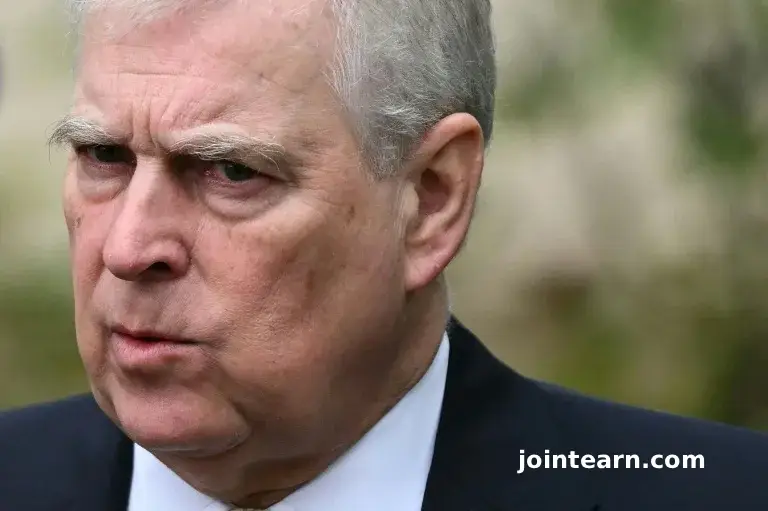
In a historic and unprecedented move, King Charles III has stripped his brother Prince Andrew of all royal titles and privileges, effectively exiling him from the royal family’s inner circle. The decision, which has not occurred in more than a century, came after renewed public outrage over Andrew’s association with the late U.S. sex offender Jeffrey Epstein and fresh allegations detailed in the memoir of Virginia Giuffre.
The king also ordered Andrew’s removal from his longtime residence on the Windsor Castle estate, further solidifying his isolation from royal life. The move has been widely welcomed across the United Kingdom — though many argue it does not go far enough.
A Historic Break: The First Title Removal in Over a Century
King Charles’s decision to revoke Andrew’s “Prince” title marks the first such royal demotion since 1919. Buckingham Palace confirmed the announcement on Thursday, describing it as part of the king’s broader effort to “protect the dignity and integrity of the monarchy.”
“This is a huge, historic development,” said Amy Wallace, the ghostwriter of Giuffre’s posthumously published memoir. “To have someone as respected as the king take this step and implicitly say, ‘I believe you,’ is monumental.”
The BBC reported spontaneous applause from the audience during a live taping of Question Time after the decision was announced. Politicians and public figures across party lines praised the move as a necessary act of accountability.
Public and Political Support — But Calls for Justice Continue
British Culture Secretary Lisa Nandy hailed the king’s action as “brave, important, and right,” noting it reflected the monarchy’s growing recognition of public sentiment.
However, many observers believe the decision does not go far enough. Sky Roberts, Giuffre’s brother, told the BBC that while the move was commendable, “it’s not enough. He needs to be behind bars.”
The anti-monarchy advocacy group Republic announced that it had instructed legal teams to review whether sufficient evidence exists to pursue a private prosecution against Andrew. Despite previous investigations by London’s Metropolitan Police, no charges have been filed.
Background: The Epstein Connection and Renewed Allegations
The controversy surrounding Prince Andrew, 65, has persisted for years due to his long-standing friendship with Jeffrey Epstein, who was convicted of sex trafficking minors. In 2022, Andrew agreed to pay a multi-million-dollar settlement to Virginia Giuffre, who accused him of sexual assault when she was a teenager — allegations he has consistently denied.
The scandal resurfaced following the release of Giuffre’s memoir last week, which detailed in harrowing terms how she was allegedly trafficked to Andrew three times, twice when she was only 17. Giuffre, who later became a U.S. and Australian citizen, died by suicide in April at the age of 41.
Her book’s release reignited public anger and renewed scrutiny of Andrew’s conduct, prompting calls for King Charles to act decisively to protect the monarchy’s reputation.
Eviction from Windsor and Exile to Sandringham
As part of the king’s ruling, Prince Andrew will lose his official residence — the 30-room Royal Lodge on the Windsor estate — which he had reportedly occupied under a favorable lease agreement since 2003. Reports revealed that he paid little to no rent for the mansion, sparking further outrage amid Britain’s cost-of-living crisis.
Andrew will reportedly relocate to a smaller lodge on King Charles’s Sandringham estate in Norfolk. His housing arrangement there will be privately funded by the king and not supported by public money.
According to royal historian Jonathan Dimbleby, a close friend of the monarch, “This is a huge constitutional step. Andrew has effectively been banished to Sandringham. It’s a move that shows the king’s willingness to protect the Crown, even at great personal cost.”
Mounting Pressure on the Monarchy
In recent months, lawmakers have demanded stronger mechanisms to strip royal titles and peerages, citing the lack of legal clarity around the monarchy’s internal disciplinary powers. Independent MP Rachael Maskell said she plans to move forward with legislation to ensure greater transparency and accountability within the royal family.
King Charles, who was recently heckled at a public appearance by a protester shouting “How long have you known about Andrew and Epstein?”, has faced pressure to demonstrate that the monarchy is not above the law. The decision to strip Andrew’s titles is seen by many as a symbolic step toward modernizing and reforming royal privilege.
A Turning Point for the Royal Family
For King Charles III, the decision represents both a personal and institutional reckoning. By removing Andrew’s titles and privileges, he signals a commitment to uphold the monarchy’s moral integrity while managing one of its most damaging scandals in recent history.
“Charles will be feeling a measure of relief,” said Dimbleby. “He hopes this draws a line under the issue for him and the monarchy — although it won’t, of course, for Andrew.”
Despite losing his titles, Andrew Mountbatten-Windsor remains eighth in line to the throne, but he is now barred from official royal duties and public appearances on behalf of the Crown.
As the UK debates the future of its monarchy, the fall of Prince Andrew may come to symbolize a new era — one where royal accountability and public trust are no longer mutually exclusive.


Leave a Reply